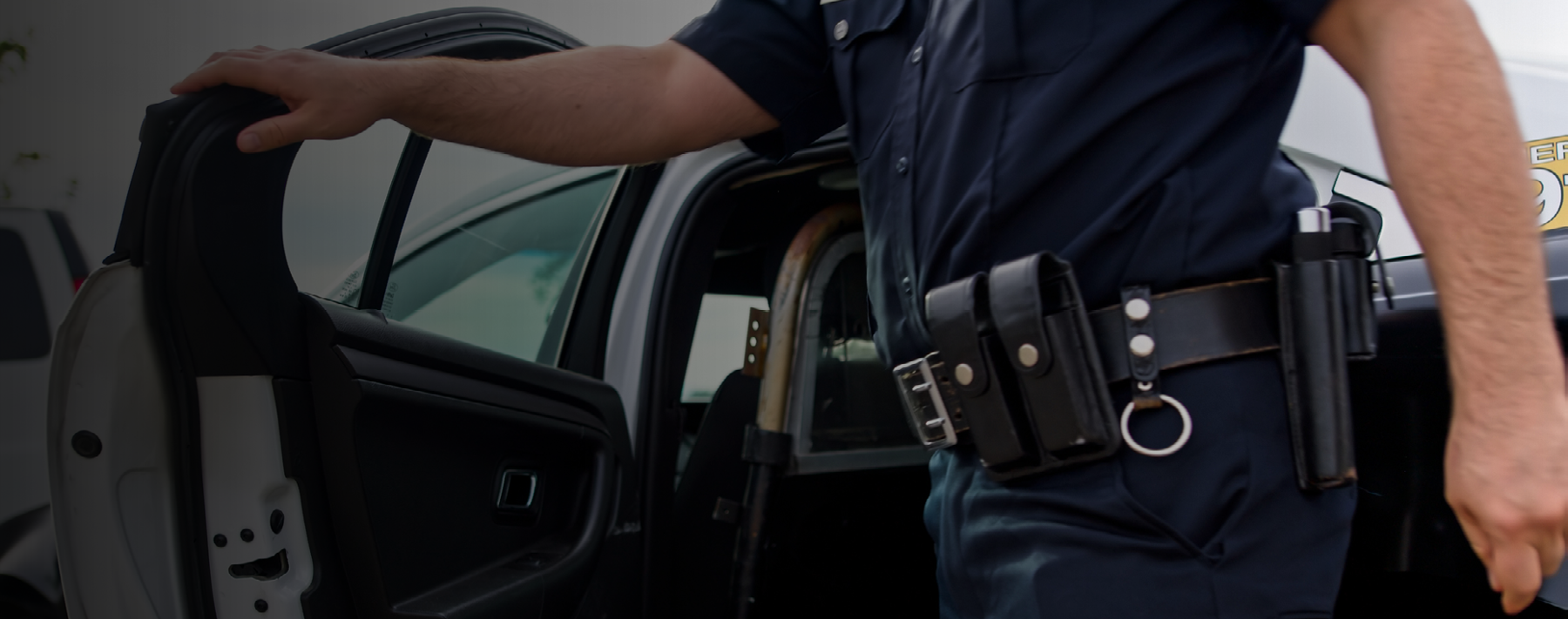I started out this confession last month by telling you I made a great many mistakes during my two decades as a field training officer. But I’m not here to entertain (or bore) you with war stories about specific incidents. As I mentioned, my confession concerns more fundamental blunders—thinking I was a “teacher,” an “evaluator” and a “role model” when a trainee accompanied me.
Only by examining these three mindsets more closely can we show why they fall short and in turn answer the question, what makes a good field training officer?
Field Training Officer as Teacher
As an FTO, I was a teacher. My trainees depended on me to teach them stuff. That “stuff” included what it took to be a successful solo officer at our agency. From my perspective, that meant I needed to teach them everything I could in our time together, including search and seizure, officer safety, geography and report writing (and so much more). I also taught the methods of conducting various criminal and traffic investigations, how to speak to people in crisis situations and who the “bad guys” were—those I knew of, anyway.
To keep it all organized, our agency provided an FTO program manual where everything the trainee did was documented and/or “signed off” by me, my trainee, and his or her other trainers. I was responsible for teaching stuff in a certain phase, and I had to depend on other training officers to teach stuff in theirs.
But wait, it wasn’t me who had to depend on the other training officers, was it? It was the trainee who had to depend on me and on the other training officers. And this is where I eventually came to realize the two flaws in my philosophy of FTO as teacher: First, while I was focused on “teaching,” I sometimes wasn’t focused on what mattered—what the trainee was learning. And second, the trainee shouldn’t depend on me for his or her success in the program.
As to the first point, I wasn’t clueless. I recognized a nexus between teaching and learning. I watched for evidence that a trainee was applying lessons learned by not making the same mistakes over and over. Repeating errors, even after teaching and training, was an indicator that the trainee had not yet learned. My response was to try to “teach harder,” or somehow “better,” whatever that meant. Rarely did it mean “differently,” such as accounting for learning styles. Without insight regarding how adults learn, my trainees and I probably unwittingly stumbled through the dark together more often than I knew at the time. In truth, I suspect some trainees succeeded in spite of my efforts, rather than because of them.
In truth, I suspect some trainees succeeded in spite of my efforts, rather than because of them.
My trainees had instructors at the academy, and my trainees successfully graduated. It was my job to take them to the next level by applying the lessons they learned in the academy, to contextualize our agency-specific processes and to bring the geography of our city to life. In essence, my role was to cause them to remember what they learned in the academy so that we could build on it in the complex, unpredictable, unsterile environment of the street. This is quite different from the traditional FTO mantra, “Forget all that stuff you learned in the academy. I’m going to show you how it really works now.” To accomplish this, I had to hold them accountable for academy lessons, cause them to recall and apply those lessons, and then build on the lessons. I’ve since learned this is primarily facilitation, rather than teaching.
Another aspect of being the “teacher” in our emergency-equipped mobile office was that it automatically put us on different tiers. Some training officers might appreciate—or even relish—the implicit rank structure in the FTO-trainee relationship, but research suggests adult learners aren’t as enthusiastic about it. If you’re unsure about this, think back to your own field training experience. Did you feel free to ask any question? Were you trying to behave more like your trainer than yourself in unfamiliar situations? Were you intimidated by more than just the task of learning knowledge you were trying to master? Ultimately, did you feel you and your training officer were equally valuable to your agency? My point: The differing statuses in the car probably affected some of the learning we were trying to accomplish, and I was guilty of perpetuating the situation with my own mindset.
It wasn’t enough that I had seniority, experience and confidence; my trainees looked to me as “the expert.” That put a lot of pressure on me to “know stuff.” While I wasn’t inclined to give an answer when I didn’t know the answer, what training officer enjoys saying, “I don’t know”? We do it when we must—sparingly, diffidently—before immediately correcting the knowledge gap. Being “the expert” was another form of creating a status conflict in our car. My goal should have been to cause my trainees to become “the expert” as they traveled the road to solo patrol. Instead of reluctantly answering, “I’m not sure” or “I don’t know,” perhaps it would be better to say, “That’s a great question. How do you think we should find the answer?”
I understand the role of an FTO is to teach, to train, to educate. Trainees—and our agencies—depend on us to teach the requisite “stuff” of policing. However, I found thinking of myself as a teacher in the FTO role limited what I had to offer, placed me in a position of superiority over my trainees, and caused me to focus more on my teaching, instead of focusing on the trainee’s learning.
Field Training Officer as Evaluator
As an FTO, I was an evaluator. I could not escape evaluation, and in many ways evaluating my trainee’s performance caused me to think harder, to know my job better, and to provide accurate, effective feedback. In time, I realized evaluating how well—or how poorly—a trainee managed a traffic stop or a domestic dispute was different than completing written evaluations at the end of the shift.
Evaluating in the moment allowed me to analyze various components of a behavior. Did the trainee observe the traffic violation? Was he or she able to communicate the impending stop on the radio? Did the trainee properly position the patrol car behind the violator? What did he or she say to the motorist and how did the interaction go? Was the trainee aware of officer safety issues? How long did it take the trainee to issue the citation, and was it for the correct violation? All these observations allowed the opportunity to ask the trainee about his or her thought process, to issue reminders about this or that, to make suggestions for improvement, and to talk about how the incident went.
But the end-of-the-day evaluations were a different animal. I was required to assign a numerical score to general categories such as “routine driving,” “emergency driving,” “officer safety” and “radio communications.” How was I to score a trainee who performed perfectly during the car stop, but stood in the “fatal funnel” at the entrance to a residence on a domestic call? Yes, it’s true we had “standardized evaluation guidelines” to provide general information about what the numbers were supposed to mean, but I still wrestled with the scoring. Trainees were the only consistency—they all complained the numbers were inconsistent from trainer to trainer, and sometimes from day to day!
How was I to score a trainee who performed perfectly during the car stop, but stood in the “fatal funnel” at the entrance to a residence on a domestic call?
The shortcomings of these written evaluations is not my biggest concern, however. My experience and learning has now shown me that, in some cases, with some trainees, I was an evaluator. That is, when a trainee wasn’t doing well, I shelved the teacher role and went into evaluation mode. I critically evaluated everything: every action, every wrong turn, every misspelled word in every report. In one case, the guy’s bad breath was subject to scrutiny. I suspect I wasn’t very fun to work with in these times.
In my role as evaluator, I acted as a gatekeeper. I believed I tried—oftentimes very hard—to teach what needed to be taught. I believed the trainee had been given every opportunity to learn—and was failing. I can rationalize and say that not everyone is meant to be a cop, and I can try to rationalize that I was just one of the many who could see it, but I won’t. I’ll just own it. Sometimes, I was a vehicle for dismissing people who sought a career at our agency because I didn’t believe they could cut it. And then I “evaluated” them out. In some cases, I know this was the right thing to do. But was it in all cases?
Fortunately, I can tell far more tales of success than failure. The skill of effective evaluation served me well and continues to do so. It is impossible to evaluate when you don’t know or understand a concept and can’t apply or analyze it. Evaluation is a higher-order thinking process, valuable for all its benefits. What matters is how one approaches it, and the intent behind it.
Field Training Officer as Role Model
As an FTO, I was a role model. I knew I was being watched, and I saw my trainees modeling the behavior I exhibited on the street. In most cases, this was a positive thing; I generally behaved the way I wanted my trainees to behave. But no one’s perfect, right? As an imperfect human, it’s possible I exposed shortcuts, introduced minor administrative “work-arounds” and revealed strategies best left to veterans (or out of the repertoire altogether).
Role modeling, I’ve found, has its proper place. For visual learners, modeling may be one of the most effective training tools. For example, when a trainee sees how an investigation into driving under the influence goes—from start to finish, and out of the safe confines of the academy—he or she can more comfortably and accurately replicate it. A trainee who sees a trainer model various conflict-resolution strategies has the very direct opportunity to expand his or her own repertoire.
But role modeling also has its disadvantages. It can inhibit a trainee’s willingness or ability to develop his or her own style. This is problematic because the agency ultimately doesn’t want a bunch of carbon-copies of “you” out there; it wants a variety of perspectives, approaches, problem-solving strategies and personalities. This helps us respond to our community’s diversity, and to creatively address the complex, long-term problems we face.
Also, seeing yourself as a role model keeps the focus on you. You scrutinize your actions, seeking to be worthy of emulation. Just as trying to be the best teacher causes you to focus on your teaching, rather than the trainee’s learning, trying to be the best role model can cause you to focus on your behavior, rather than the trainee’s.
So Seriously: What Makes a Good Field Training Officer?
So if teacher, evaluator and role model don’t quite fit, what does make a good field training officer? That, my friends, will be the subject of my next article.



